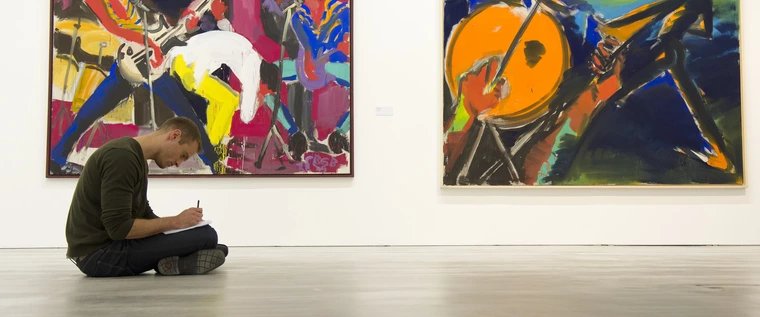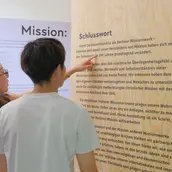
ROADS NOT TAKEN. OR: THINGS COULD HAVE TURNED OUT DIFFERENTLY.
Starting from key dates in German history, the museum presents a look back(wards) at decisive historical events of the 19th and 20th centuries.
It brings actual turning points face to face with what might have happened if it were not for various factors.
Along 14 distinctive caesurae in the German history the probabilities of unrealised history – prevented by accidents, averted by misfires or other kinds of shortcomings – are explored: it is that which is known in the philosophy of history as contingency.
The course of these caesurae begins in 1989 with the Peaceful Revolution in the German Democratic Republic (GDR) and ends in the year 1848, when Germany first tried to attempt a democratic awakening.
The exhibition takes up retrospectively such topics as “Ostpolitik”, the building of the Wall, the Cold War, the assumption of power by the National Socialists, as well as revolution and democratisation at decisive points – and illustrates that history by no means had to end as it actually happened.
In this way, milestones such as the Stalin Note of 1952, the Korean War in combination with the Berlin Airlift of 1948/49, the failed blasting of the bridge at Remagen in 1945, the attempted assassination of Adolf Hitler in 1945, the deposal of Chancellor Brüning in 1932, the revolution of 1918, the outbreak of the First World War in 1914, or the Austro-Prussian War of 1866, appear in a new light.
This perspective, unusual for a history museum, should make it possible to see well-known facts in a new light and to encourage an understanding of the principal open-endedness of history as a result of constellations and decisions, actions and omissions.
Under the project management of Fritz Backhaus, the exhibition is curated by Julia Franke, Stefan Paul-Jacobs and Dr. Lili Reyels.
Additional information
Opening hours
daily 10 a.m. to 6 p.m.
closed December 24th
December 31st, 2024: 10 a.m. to 2 p.m.
January 1st, 2025: 12 p.m. to 6 p.m.
daily 10 a.m. to 6 p.m.
closed December 24th
December 31st, 2024: 10 a.m. to 2 p.m.
January 1st, 2025: 12 p.m. to 6 p.m.
Accessibility
- The exhibition is designed to be inclusive and accessible.



